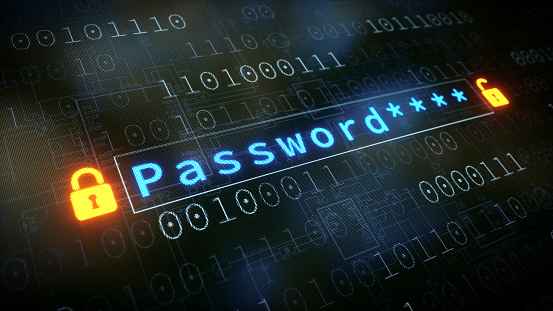If you own a website, this series is for you! The Peralta Design web team put together a series to help business owners understand the importance of a website, how to maintain it and what to look out for. We will be releasing a new blog post every month, so stay tuned!
Dealing with cyberattacks can be overwhelming, but maintaining cyber security best practices doesn’t have to be! Peralta Design has your back, and we’ve prepared a list of the do’s and don’ts to create a strong password and help you stay secure.
What is cyber security?
Cyber security is the practice of being vigilant and defending computers, servers, mobile devices, electronic systems, networks, and data from potential malicious attacks, damage, or unauthorized access.
How it can impact your business
While you may think that you and your business are safe from these potential attacks, there is a high chance that without proper preventative efforts you will fall prey to them at some point.
Did you know that 43% of cyber attacks target small businesses? And that only 14% of small businesses state that their ability to mitigate cyber attacks and vulnerabilities is highly effective? Because of this, it is extremely important to remain vigilant against these threats and stay up to date with web best practices such as creating a strong password.
How to combat cyber attacks
One of the simplest ways to protect you and your company from cyber attacks is to make sure you have strong, unique, and secure passwords. Passwords are the first line of defense against unauthorized access to your computer, accounts, and personal information, so making sure you have a strong one is important! After all, you wouldn’t choose a weak lock for your house, so why would you choose one for your online security?
Password Best-Practices
Do’s
- Do make your passwords at least 16 letters in length in order to make them difficult for hackers to crack.
- To accomplish this try to combine random phrases and words to create long complex passwords that are easier for you to remember.
- Do enable 2 Factor Authentication on any platform that makes it available.
- Do store passwords in secure places such as Google Keep or a locked note on your phone.
Don’ts
- Don’t reuse passwords. This seems simple, but many of us are guilty of this!
- Don’t include personal information such as birthdays, names, schools, frats, or other organizations in your passwords.
- Don’t write passwords down in public places or store them in unsecured places.
- Don’t share them with anyone unless sent via an encrypted email.
Secure Tools We Love!
Another important step to take in making sure your account and passwords are secure is to use online tools. To check if your account integrity has been breached use the tool Have I Been Pwned. If you’re having trouble coming up with unique, random, and secure passwords use the Secure Passwords Generator randomizer to help you.

